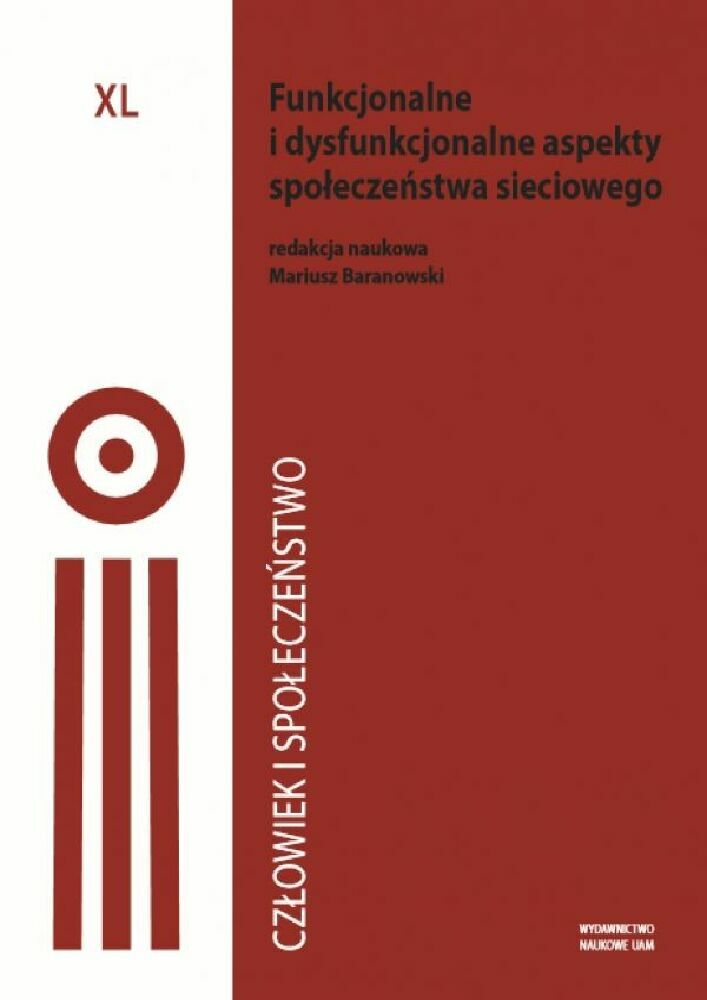Abstrakt
The aim of the text is to use the concept of glocality (Robertson) to discuss the specific character of RuNet, the Russian-language Internet, the limits of which are not based on geographical boundaries but language. The emergence of RuNet, both at the level of nomenclature and at the level of giving it peculiar characteristics that distinguish it from the rest of the web resources, is related to the initial lack of compatibility of the Cyrillic and Latin Internet. On the one hand, due to the emergence of a separate Russian-language space on the web, the native search engines (such as Яндекс), blogging platforms or social networking sites (ВКонтакте) preferred by the Russians occupy several or sometimes even a dozen or so percent of the world market. This is an obvious phenomenon as the portals of a group of German-speaking, French-speaking, Latin American countries and China do not achieve such results. On the other hand, the difference in notation has favoured self-isolation of RuNet, which, by its distinctiveness, has become a part of the web isolated on a global scale. One
of the most significant indicators of RuNet’s glocality is its functioning in the field of neo-imperial ideas. The notion which is visible on every level of the decentralized message that Russia is once again becoming an empire is a constantly recurring chorus of Internet divagations. The glocality of the Russian-speaking Internet does not constitute the plain total sum of pre-national and postnational elements, but the ratio of these two systems, a peculiar, original version of the “third way.” The summing up of the article will be an attempt at answering the question where this way will lead RuNet.
Bibliografia
Barney D., Społeczeństwo sieci, Warszawa 2008.
Castells M., Sieci oburzenia i nadziei. Ruchy społeczne w erze internetu, Warszawa 2013.
Clayton N., Yandex Overtakes Bing as World’s Fourth Search Engine, „Wall Street Journal” 21.02.2013.
Filipek K., Mobilizacje społeczne, rewolucje i kontrrewolucje w środowisku Web 3.0, „Konteksty Społeczne” t. I, 1/2013.
Freenberg A., Questioning Technology, London 1999.
Gromadzki G., Historyczny przełom. Rządzący i rządzeni w dzisiejszej Rosji, Warszawa 2012.
Gromadzki G., Niebezpieczna gra. Władza wobec społeczeństwa w Rosji w 2014 roku, Warszawa 2014.
Heidegger M., Technika i zwrot, Kraków 2002.
Internet World Stats, http://www.internetworldstats.com/stats4.htm [1.07.2014].
Łuczak R., Społeczeństwo i kultura w zglobalizowanym świecie, w: M. Czerny, R. Łuczak,
J. Makowski (red.), Globalistyka. Procesy globalne i ich lokalne konsekwencje, Warszawa 2007.
Morozov E., The net delusion. The dark side of internet freedom, New York 2011.
Robertson R., Glocalization: Time-Space and Homogeneity-Heterogeneity, w: M. Featherstone,
S. Lash, R. Robertson (red.), Global Modernities, London 1995.
Rogoża J., Internet w Rosji: kolebka społeczeństwa obywatelskiego, „Komentarze OSW” 72/2012.
Rogoża J., Kreml kontra Internet: koniec rosyjskiej strefy wolności?, „Analizy OSW”, http://
www.osw.waw.pl/pl/publikacje/analizy/2014-05-08/kreml-kontra-internet-koniecrosyjskiej-strefy-wolnosci [1.07.2014].
Rogoża J., Rosja po wyborach: oddolna presja zmusza władze do zmiany taktyki, „Analizy
OSW” 14.12.2011, http://www.osw.waw.pl/pl/publikacje/analizy/2011-12-14/rosja-powyborach-oddolna-presja-zmusza-wladze-do-zmiany-taktyki [29.06.2014].
RuNet – najszybciej rosnąca gospodarka internetowa w Europie, „Radio Głos Rosji”, http://polish.ruvr.ru/2012_10_15/91336890/ [1.07.2014].
Russian Public Opinion 2010-2012, Levada Analytical Center, Moskwa 2012.
Szewcowa L., Rosja przed nowym cyklem politycznym: paradoksy stabilności i petro-state, w: A. Politkowska (red.), Imperium Putina, Warszawa 2007.
Why do We need the Internet?, Russian Public Opinion Research Center, http://wciom.com/index.php?id=61&uid=723 [1.07.2014].
Zubarevich N., Four Russias: Rethinking the post-Soviet map, http://www.opendemocracy.net/author/natalia-zubarevich [1.07.2014].
ВЦИОМ, http://wciom.ru/index.php?id=459&uid=112941 [1.07.2014].
ВЦИОМ выяснил, для чего россиянам нужен Интернет, http://news.softodrom.ru/ap/b15297.shtml [1.07.2014].
Число пользователей интернета в России к 2014 году составит 80 млн чело-век, „Газеты.Ru” http://www.gazeta.ru/social/news/2012/07/30/n_2460333.shtml[1.07.2014].
Интернет в России: динамика проникновения, http://runet.fom.ru/Proniknovenie-interneta/10738 [1.07.2014].
Развитие интернета в регионах России, http://company.yandex.ru/researches/reports/internet_regions_2012.xml#toc3 [1.07.2014].
Россияне заменяют телевидение Интернетом, http://news.softportal.com/nitem-11562.html [1.07.2014].
Licencja
1. W momencie złożenia pracy celem rozpoczęcia postępowania w sprawie publikacji, Licencjodawca, zwany dalej Autorem, akceptuje wszystkie zasady umieszczone na stronie internetowej czasopisma “Człowiek i Społeczeństwo”, udzielając Licencjobiorcy, zwanego dalej Wydawcą, niewyłącznej i nieodpłatnej licencji na korzystanie z Utworu. Licencja zakłada tym samym brak ograniczeń terytorialnych, czasowych oraz ilościowych na następujących polach eksploatacji (art. 50 ustawy z dnia 4 lutego 1994 r. o prawie autorskim i prawach pokrewnych):
a. utrwalanie Utworu;
b. zwielokrotnienie Utworu drukiem i w wersji cyfrowej;
c. wprowadzenie do obrotu, użyczenie lub najem oryginału/zwielokrotnionych egzemplarzy Utworu;
d. publiczne wykonanie, wystawienie, wyświetlenie, odtworzenie oraz nadawanie i reemitowanie, a także publiczne udostępnianie Utworu w taki sposób, aby każdy mógł mieć do niego dostęp w miejscu i w czasie przez siebie wybranym;
e. włączenie Utworu w skład utworu zbiorowego;
f. wprowadzenie Utworu w postaci elektronicznej na platformy elektroniczne lub inne wprowadzenie Utworu w postaci elektronicznej do Internetu, Intranetu, Extranetu lub innej sieci;
g. rozpowszechnianie Utworu w wersji elektronicznej w Internecie, Intranecie, Extranecie lub innej sieci, w pracy zbiorowej, a także samodzielnie w formule Open Access w oparciu o licencję Creative Commons Uznanie autorstwa 4.0 Międzynarodowa Licencja Publiczna (CC BY 4.0), a także inną wersję językową tej licencji, lub którąkolwiek późniejszą wersję tej licencji.
2. Założenia licencji Creative Commons Uznanie autorstwa 4.0 Międzynarodowa Licencja Publiczna (CC BY 4.0), udzielają Wydawcy upoważnienia do kopiowania, zmieniania, rozprowadzania, przedstawiania i wykonywania Utworu jedynie pod warunkiem uznania autorstwa.
3. Wraz z dostarczeniem Utworu, Autor zobowiązuje się do wypełnienia, podpisania oraz odesłania skanu umowy
